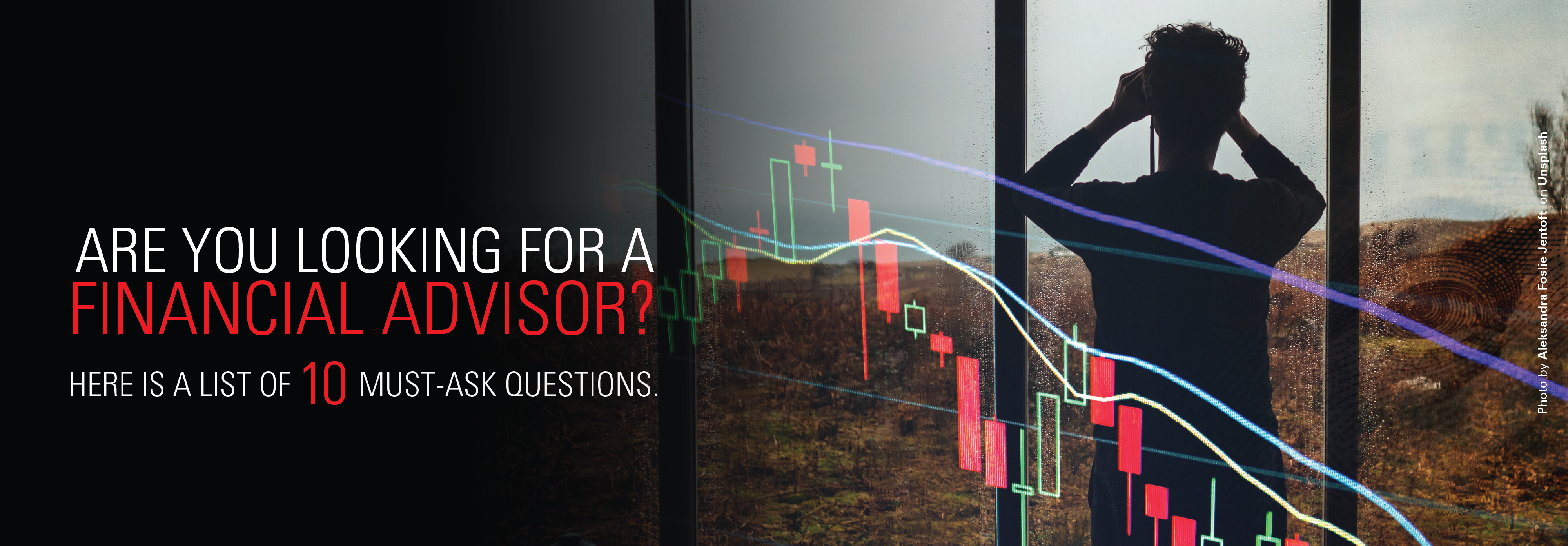Do you know the best financial decision that some of the most successful investors and HNWIs have made? Hiring a financial advisor. Yes — if you think big corporations or billionaire investors manage their own investments, you’re wrong. Managing finances and making strategic investments are not “DIY” like many would have you believe. Consulting with a financial advisor, especially in this climate of volatility and widespread economic downturn, can be likened to visiting a doctor for any ailments — if you aren’t going to risk self-diagnosing and treating your health issue, there is no reason why you should risk managing your financial health.
Then comes the matter of advisory that is feasible for your financial circumstances. In recent years, robo-advisors have gained market share, by eliminating entry barriers. However, such services are not personalized. This drawback is addressed by virtual advisors, who use video conferencing, phone calls and other digital communication channels to assist clients. However, there is a greater inclination towards traditional, in-person advisory, which is considered advantageous because of face-to-face communications and trust by virtue of physical presence. If you’re reading this article, chances are that you looking for such an advisor. Here are 10 questions that will help you select the best financial advisor, or an independent financial advisor (IFA), or a broker, for your unique needs.
1. Are you a 100% regulatory (fiduciary), dual-registered, or non-regulatory?
Every investor who has navigated the advisory ecosystem will tell you that asking this question is the first order of business. The fundamental difference between a regulatory and a non-regulatory is not the services they offer but the way they do it. A 100% regulatory is obligated, by law, to work in the interest of the client, without “selling” any services. Such advisors often consider a number of factors pertaining to the client’s finances before suggesting the most viable course of action. A non-regulatory can do the same but is not obligated to do so. As a result, he/she can make recommendations that may or may not be best suited for your circumstances. Some have dual registrations as well. It is advisable to ask and find out.
2. What are your service affiliations?
Financial advisors and intermediaries operate in different capacities — as independent consultants, contracted under big corporations, using third-party custodians, etc. If the advisor in question is working with third-party custodians, then it becomes important to know the latter’s status. The same goes for an advisor’s certifications and memberships. Many advisors and intermediaries work with reputable custodians who offer investment security by virtue of their brand reputation. In addition, they offer transparent means to oversee your accounts and their progress. That said, regardless of the reputation, there are instances of custodians going rogue. So, it’s advisable to do your due diligence before association. Also, there are insurance considerations when it comes to starting accounts with a custodian.
3. What types of services do you offer?
Financial intermediaries often offer comprehensive services, but most specialize in certain, specific aspects, including retirement planning, tax planning, hedge investments, asset allocations, etc. Regardless of what the advisor/intermediary/broker in question specializes in, it’s important to quiz them on it. At times, an advisor might advertise as “comprehensive” services, but may not offer the same. When sought, the advisor must be able to furnish detailed information on the various services on offer and their applicability to your portfolio. Any hesitancy, delays, or subterfuge should make you more cautious about the advisor, prompting more inspection.
4. How do you charge?
A considerable number of people get sceptical over hiring an advisor due to the belief that it could cost them dearly. In fact, the opposite is true — due to advisors’ expertise, you stand to earn significantly more in returns than what you pay for their services. However, it’s advisable to attain utmost clarity about the types of charges, the mode of compensation, etc. before signing on the dotted line. The typical modes of compensation include: flat fee, wherein the payment is predetermined for a particular service like, say, one-time creation of a tax plan; if the advisor is tied up with third-party custodians, the latter will levy transaction charges per trade; commonly, advisors charge an annual fee as a percentage of the Assets Under Management (AUM). In addition, financial advisors offer services that will entail opportunity costs. Lack of prior understanding of the same could create friction when you encounter such costs.
5. Who are your typical clients?
This question, although seemingly trivial, can determine whether or not the advisor/intermediary/broker in question is a good fit for your financial circumstances and aspirations. While financial circumstances tend to vary from person to person, there are common needs between investors. As a result, many advisors specialize in niche services, certain age groups, and domains like tech, healthcare, etc. Say, if you’re employed by the government, then chances are that you are obligated to meet specific rules and have exclusive financial opportunities. An advisor well-versed in dealing with clients from the government sector is more suitable for you in that case. He/she will be adept at avoiding conflicts of interest, capitalizing on exemptions, and planning a financially secure retirement.
6. Do you have a team that supports you or do you work alone?
Although not nearly as people from other professions, financial advisors too jump ship, go their own way, change their niche, etc. So, by asking the above question, you ensure that your interests are safeguarded. It’s ideal to have a single point of contact who knows you well and can use that knowledge to personalize the services. However, in that case, your fortunes are hinged on the availability of the said advisor whenever required. What if he/she happens to leave the company? Therefore, many tend to favour advisors with longevity at a company, or those who work with a small team. Through acquaintance with the other team members, you do not run the risk of having to start from scratch if your primary point of contact is unavailable.
7. How long have you been in the business?
In the financial advisory, experience has no substitute. While the industry has gone as far as robo-advisory, it’s the experience that is still unrivalled as a value proposition. Advisors with decades of experience, by virtue of their knowledge, know when to enter and exit certain asset classes. Most importantly, they can weather the storm, having navigated through different economic cycles in their career. Such advisors are especially built for times like this when financial markets are in constant flux, at times in sync with the movements of large corporations and central banks; at times given to volatility with no clear pattern. So, your ideal advisor is someone who has a demonstrable track record of successfully managing clients’ finances, from their early-stage career all the way to retirement. Such advisors also boast professional associations that will help clients’ causes in more ways than one.
8. How much time will you dedicate to me?
Financial advisors and intermediaries often have a clear blueprint in terms of the services they offer and associated charges. There are instances where an advisor either makes no “time” promises or assures to spend a certain amount of time but doesn’t follow through. Both aren’t good. So, it’s important to establish dialogue and ensure that the advisor not only makes “time” promises but also has mechanisms to follow through. Besides the minimum time and post-allocation follow-ups, there should be provision for on-demand consultations as well, under special-case scenarios. A good financial advisor is flexible in terms of changing needs, goals, and priorities.
9. What's the general perception of your advisory?
The answer to this question could be attained online or by word-of-mouth, but the reason you should personally ask the advisor is to gauge their level of transparency. If an advisory has been hit with a scandal, it’s important to bring it to the table. There are reports of organizations changing titles from stockbrokers to financial advisors to distance themselves from past scandals. In fact, advisors and intermediaries go by many monikers: Certified financial planner, financial consultant, independent financial advisor, etc. Many fear that, without consistent titles, there is a risk of maligning reputation. A financial planner’s modus operandi is not the same as that of a consultant’s. So, it’s important to establish the function of the advisor in question before further engagement.
10. What are your credentials and investment philosophies?
There are various asset classes and investment instruments, but not all are favoured by certain advisors. So, your talk with the advisor should touch up their philosophies and their affinity, or the lack thereof, for gold, hedge funds, ETFs, low-cost index funds, tax-loss harvesting, diversification, etc. This is followed by questions on their credentials and, most importantly, how they can help your cause. A good advisor/intermediary/IFA/broker will be glad to take any number of questions and will answer each one with patience and factual information.
Some of these questions could come out as hard-hitting or downright invasive, but they pale in comparison to the issues you may face if your finances end up in the wrong hands. If you are ready to be matched with an advisor who will help you achieve your financial goals, write to us at info@cfsgroup.com. Get started now.





